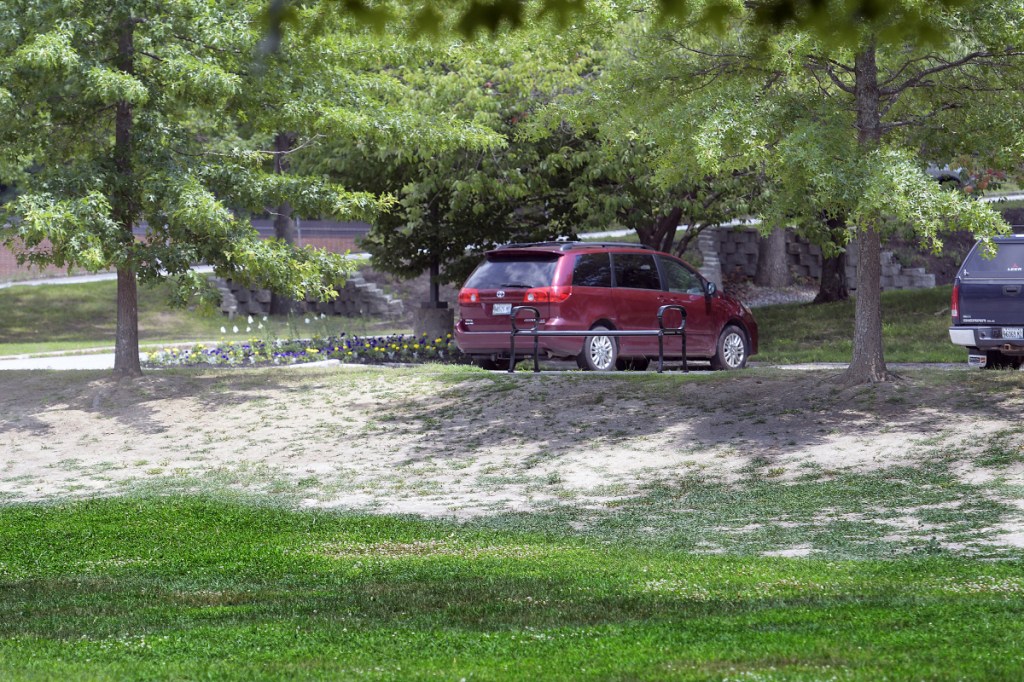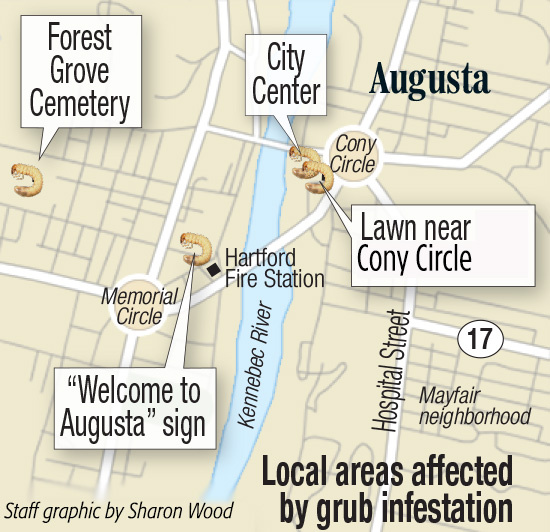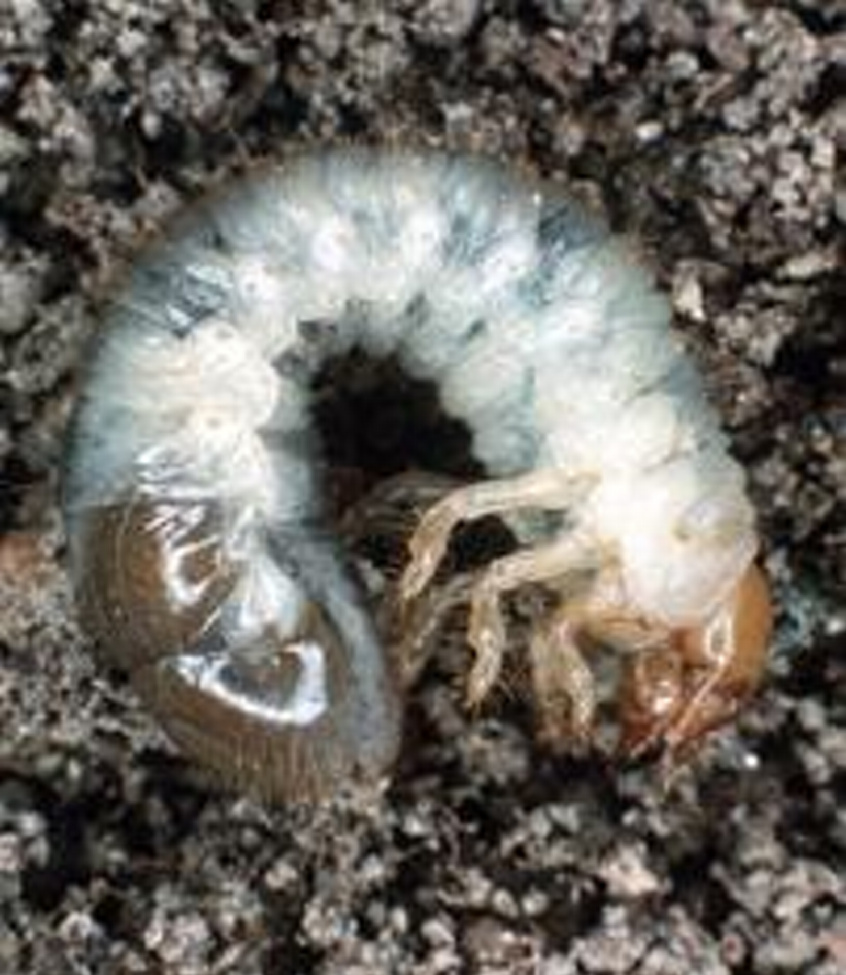AUGUSTA — City councilors were told Thursday that there are several methods the city can employ to fight an infestation of beetle grubs eating away much of the grass in many parks and other public areas.
Experts said a combination of pesticide treatment, different grass varieties and other management changes can kill off an infestation of what they believe to be grubs of European chafer and Japanese beetles.
“Can we win this war?” Mayor David Rollins, who says the infestation leaves a bad impression of the city, asked of two turf company representatives.
“You absolutely can win this,” responded Frank Windle, of Hermon-based PA Lyford, which does business as Trugreen.
City Manager William Bridgeo said pesticides would not be used on public property where children regularly play on the grass.
Leif Dahlin, community services director for the city, said the city’s current policy is to use pesticides only on a limited basis.
Dahlin said he’s never seen destruction of lawns on such a large scale.
He said grubs, the larval form of beetles, eat the roots and kill grass. Affected lawns may look worse as crows come and pick at the turf to dig up grubs.
Prominent spots left either barren or filled with weeds and crabgrass include the area surrounding the “Welcome to Augusta” sign downtown, much of the lawn around Augusta City Center and Old Fort Western, athletic fields, cemeteries, both in-town rotaries and parks across the city.
The solution could involve chemical insecticides and hydro-seeding to replace the denuded areas.
Windle and Gary Fish, the state horticulturist who said he was at Thursday’s meeting only as a city resident, said other steps can help, too.
Windle said beetles like sunny, dry slopes to lay their eggs in, and some are also attracted to lights.
“So, with lighting in parks, you’re drawing them in, essentially,” he said. “Certain beetles like certain plants. If those are there, and if there is a nice dry slope there, then you have an infestation.”
Fish said nematodes, microscopic worms, also can be used to kill grubs.
He said probably four varieties of beetles are infesting the grass, with European chafers likely the biggest problem. He also said that certain varieties of grass, especially tall fescue, are more resistant to grubs than other grasses.
Dahlin said whether the city should use insecticide to kill the pests is a policy question, as is the matter of how much money to dedicate to the grub fight, both issues on which city staff would take direction from the Augusta City Council. He said city policy is to minimize the use of insecticides.
Dahlin estimated it could cost $100,000 and require a multi-year effort to kill off grubs and repair and replace damaged turf.
Councilors did not vote whether to attack the problem at Thursday’s informational meeting. Bridgeo said the city staff would form a plan to address the problem and bring it back for councilors to review.
Keith Edwards can be contacted at 621-5647 or at:
kedwards@centralmaine.com
Twitter: @kedwardskj
Copy the Story LinkSend questions/comments to the editors.






Success. Please wait for the page to reload. If the page does not reload within 5 seconds, please refresh the page.
Enter your email and password to access comments.
Hi, to comment on stories you must . This profile is in addition to your subscription and website login.
Already have a commenting profile? .
Invalid username/password.
Please check your email to confirm and complete your registration.
Only subscribers are eligible to post comments. Please subscribe or login first for digital access. Here’s why.
Use the form below to reset your password. When you've submitted your account email, we will send an email with a reset code.